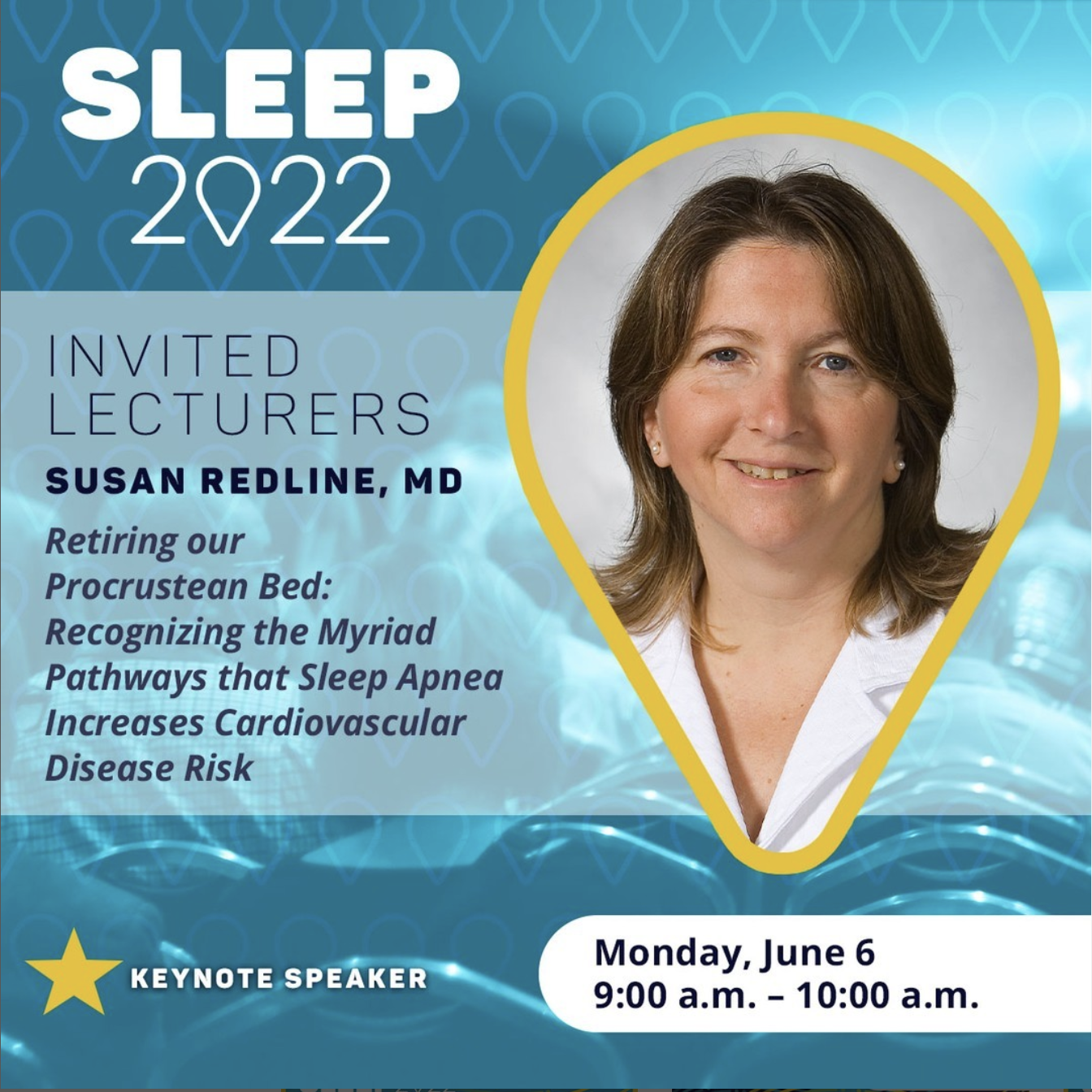It has been a long debate about whether sleep-disordered breathing (SDB) increases cardiovascular risk. During the keynote of SLEEP 2022, Dr. Susan Redline (MD, MPH, professor of sleep medicine and epidemiology, Harvard T.H. Chan School of Public Health) shared her findings on the physiologic impact of sleep apnea on stroke, hypertension, and heart failure. The most insightful sharing from Dr. Redline is that we cannot rely on only one figure: AHI, as AHI, does not identify sleep disruption autonomic stresses or phenotypic heterogeneity. The same AHI can have different: (1) duration and distribution of events; (2) Physiological consequences, including sleep fragmentation, hypoxic burden, pressure swings, and autonomic cardiovascular (CV) responses.
Cardiovascular disease (CVD) susceptibility is influenced by physiology, genetics, and exposure. Physiology includes (1) Autonomic nervous system (ANS) responses: CV responses to respiratory events, arrhythmia, ischemia, and cardiac output; and (2) Sleep State dynamics. Genetics includes inflammation and angiogenesis, while exposures include smoking, diet, physical activity, etc.
Precision medicine has been a hot topic. During the talk, Susan Redline shared her vision of how “gender differences” can be a step towards precision sleep medicine. How additional parameters, including ANS response during respiratory events, hypoxic burden, and delta heart rate, can more accurately predict CVD risks. Dr. Redline concluded the keynote by calling for action in improving metrics that robustly identify individuals at risk for OSA-related CVD, including endotypes, physiological response markers, e.g., ANS, hypoxic burdens, delta heart rate, genetics, gender, etc. Last is the need and value of multi-disciplinary teamwork in physiology, epidemiology, genetics, and implementation science. Empowered by the FDA-cleared wearable (Belun® Ring) and its proprietary machine learning algorithms, the Belun Sleep Platform is capable of computing both the AHI of the users and the ANS response throughout the night, reflecting users’ ANS response to respiratory events. In addition, hypoxic burdens and delta heart rate will be new features in the product roadmap, which concur with Dr. Redline’s outlook.
About Sleep2022 :
https://www.sleepmeeting.org/wp-content/uploads/2022/03/SLEEP-2022-Preliminary-Program.pdf
Partnering with Belun :
Up to now, over 32 organizations, including HK hospital authority hospitals, medical groups, clinic groups, dentists, and elderly centers selected to use Belun Sleep health platform, Belun® Ring and Sleep App and Belun® RemoVital monitoring system. Many doctors read our medical journal papers, including 1) “Belun® Ring Platform: a novel home sleep apnea testing system for assessment of obstructive sleep apnea” (https://jcsm.aasm.org/doi/10.5664/jcsm.8592) and 2) “Detection of obstructive sleep apnea using Belun Sleep Platform wearable with neural network based algorithm and its combined use with STOP-Bang questionnaire” (https://journals.plos.org/plosone/article?id=10.1371/journal.pone.0258040). If you would like to know more about how to adopt Belun’s solution in your organization or home use, pls feel free to contact us to schedule a meeting by filling out the form below:


